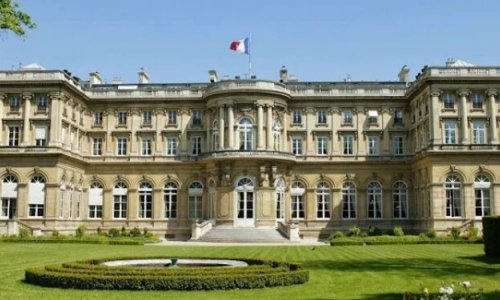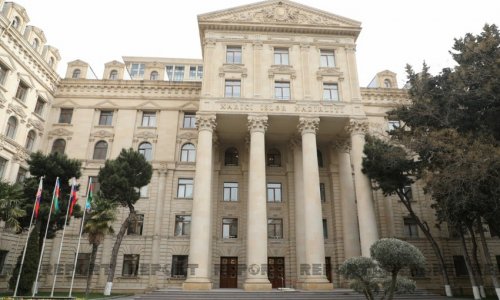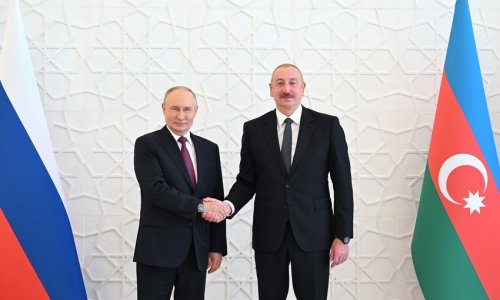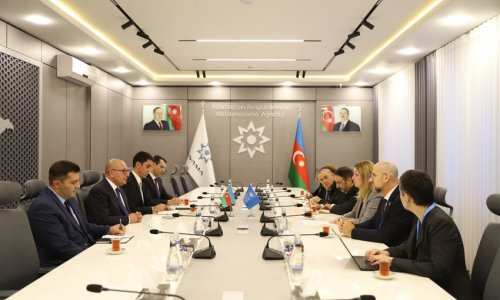By Nasimi Aghayev
As the world’s attention remains fixed on events unfolding in Iraq, Syria and Ukraine, another long-standing conflict threatens to undermine stability in an important region.
Since the fall of the Soviet Union, Armenia has illegally occupied Azerbaijan’s region of Nagorno-Karabakh and seven surrounding districts - 20 percent of Azerbaijan’s internationally recognised territory. Occupying Armenian forces have driven out hundreds of thousands of Azerbaijani civilians and destroyed priceless cultural heritage – a heatbreaking case of ethnic cleansing and injustice that is still intact.
In fact, this year marks the twentieth anniversary of the ceasefire, which ended the war between Azerbaijan and Armenia. But there is no cause for celebration, for there has been no progress towards a lasting and equitable peace. Multiple U.N. resolutions calling on Armenian forces to withdraw have been ignored: Armenia remains as the occupier of Azerbaijan’s territory and has not allowed refugees to return to their homes.
The ceasefire in place is fragile. Every year, fighting regularly breaks out along the frontline, killing scores – including many civilians. The conflict could easily spiral out of control, leading to another full-blown war.
This area is vital to the security of the U.S. and to the security of the region. Therefore a new war would be devastating both for the region and U.S.. The Caucasus is criss-crossed by oil and gas pipelines bringing energy from Azerbaijan to the West; Azerbaijan is a critical forward post in the fight against global terrorism, and a vital transport link for the U.S. troops based in Afghanistan. Stability in the Caucasus is important for America’s regional and global interests. The crises in Ukraine and the Middle East show that conflicts, if not handled properly, pose a threat to the interests of the U.S. and its allies.
Washington has played a role as a mediator since 1990s. It has refused to recognise the Armenia-installed regime in Nagorno-Karabakh, and has recently restated the importance of the full withdrawal of Armenian troops from Azerbaijan’s occupied districts.
These are commendable steps, but they fall short of what must be done to make Armenia fulfil its legal and moral obligations. As a global leader, with enormous interests in the region, the U.S. cannot allow Armenia to continue defying the will of the international community and threatening peace in the Caucasus.
To this end, the U.S. must be more active and forthright in leading the global community to condemn Armenia for the occupation, and demand that it abide by international law. If Armenia does not comply, the U.S. should impose sanctions on Armenia to compel it to behave lawfully and responsibly. Without this clear stance and without pressure on the Armenian government, no resolution will be possible, and instability and the threat of a new war will remain.
Further complicating the situation, recent political developments in the U.S. have created new tensions. In May, in an unusual foray into foreign policy, the California State Assembly passed a resolution AJR 32 calling for recognition of the illegal Nagorno-Karabakh regime – which neither the U.S. nor any other country has recognized as an independent entity.
These developments are driven by ethnic special interest groups, which actively work to damage the U.S.-Azerbaijan strategic partnership and – by extension – U.S. interests in the region, and defend at all costs the military occupation of Azerbaijan’s lands. The Azerbaijani people are watching these events and cannot understand why such hostile actions are being taken in the U.S. against a trusted friend. Such resolutions are doing great and unjustified harm to the standing of the U.S. in a critical region.
It only makes sense that the U.S. government should work to prevent the adoption of such biased and flawed resolutions by state legislatures, which justify ethnic cleansing, violate international law, and contradict American foreign policy and American interests.
Doing so would demonstrate America’s values to the people of the region, and strengthen its global leadership in restoring justice and stability in the Caucasus. The region has waited twenty years for peace: It is now long overdue to undertake real actions to bring it about.
NOTE: Aghayev was appointed Consul General of Azerbaijan in Los Angeles by President Ilham Aliyev in April of 2012. His consular district includes California and 12 other Western U.S. states.
(The Hill)
Bakudaily.az











